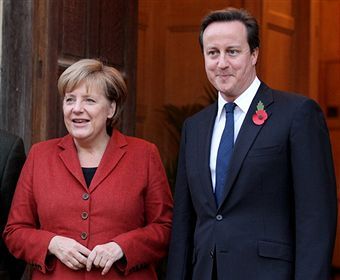 David Cameron is now in Seoul for the first G-20 summit hosted by a non–G-7 member
state. It will be the Prime Minister’s second G-20. But things have changed dramatically since he came to power and had to jet to Toronto for his multilateral baptism.
David Cameron is now in Seoul for the first G-20 summit hosted by a non–G-7 member
state. It will be the Prime Minister’s second G-20. But things have changed dramatically since he came to power and had to jet to Toronto for his multilateral baptism.
Then the Prime Minister’s arguments for austerity measures were theoretical – and a minority position. Now, they are real and have become the majority view. “Camerkelism”, the idea that short-term fiscal consolidation will induce sufficient private-sector activity to more than fully offset the fiscal drag seems to be in the ascendant.
Yet the forced smiles at the traditional G-20 class photo will belie a number of continuing problems. The biggest issue will be about the Chinese exchange rate. External imbalances, which had been shrinking due to the recession, are once again growing and threaten to undermine efforts at “balancing” the world economy.

Britain’s best politics newsletters
You get two free articles each week when you sign up to The Spectator’s emails.
Already a subscriber? Log in







Comments
Join the debate for just £1 a month
Be part of the conversation with other Spectator readers by getting your first three months for £3.
UNLOCK ACCESS Just £1 a monthAlready a subscriber? Log in